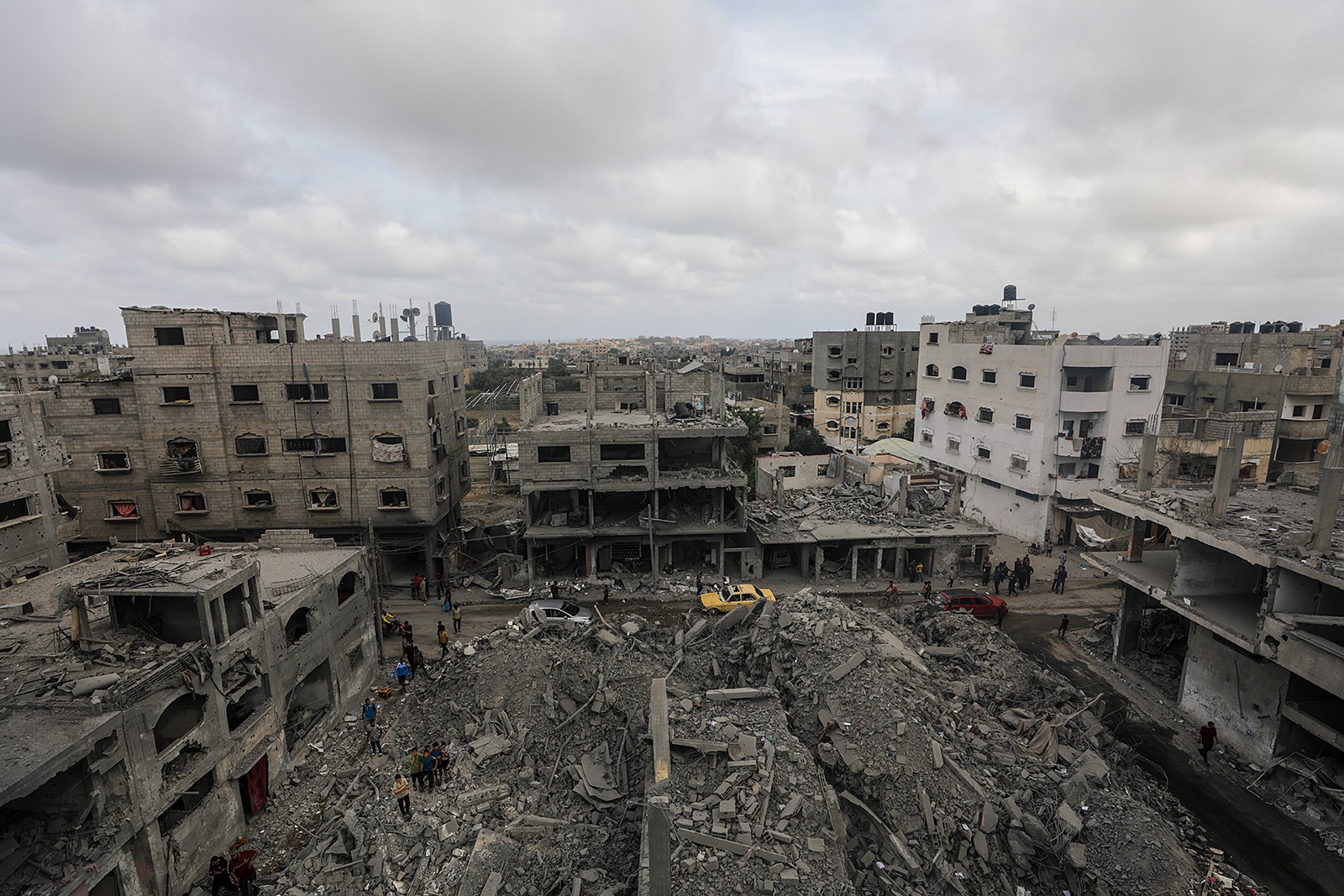Palestinian Resistance’s Response to Gaza War Deal: Insights and Conditions

Watan-Deputy Secretary-General of the Islamic Jihad Movement, Mohammed al-Hindi, revealed new details about the resistance’s stance on the currently proposed deal regarding the war on Gaza.
Al-Hindi stated that the Islamic Resistance Movement “Hamas” will present in Cairo the response of all Palestinian resistance factions to the proposal presented to them by the Egyptian mediator, which was agreed upon with the Israeli occupation.
He added that the Egyptian proposal was conveyed to all resistance factions through the Hamas movement, and it was discussed.
Earlier, Egyptian media reported that a delegation from Hamas, headed by Khalil al-Hayya, had arrived in Cairo to deliver the movement’s response regarding the ceasefire proposal in Gaza.
Hamas had previously announced, in a statement, that it received the official Israeli response to the movement’s position regarding the prisoner exchange deal and ceasefire, which it handed over to the mediators Egypt and Qatar on April 13th, indicating that once its study is completed, it will deliver its response (to the mediators).
Resistance’s condition for ceasefire
Al-Hindi affirmed that the resistance factions insisted that declaring a ceasefire be contingent upon conducting a prisoner exchange deal and the withdrawal of the occupation army in two stages, the first including the withdrawal from Rashid Street, and the second after two weeks, including the withdrawal from Salah al-Din Street and the Kuwait Roundabout.
Al-Hindi explained: “If these conditions are met, we may proceed with a deal with the Israeli enemy.”
Al-Hindi also pointed out the resistance factions’ requirement to allow the displaced persons to return to the north without any restrictions, and for the occupation forces to retreat away from the Netzarim Axis to facilitate the return of the displaced persons.
Israeli Field Failure
Al-Hindi noted that the recent Egyptian proposal took into account the significant field failure of the occupation army in Gaza, as well as regional and international pressures.
He emphasized the necessity for the United States not to blame Hamas and the resistance factions if the deal fails, as that would serve the interests of Israeli Prime Minister Benjamin Netanyahu.
He explained that the resistance showed flexibility in some matters, but Netanyahu wants to evade the deal’s obligations, and he needs to refrain from maneuvering with the resistance factions.
Resistance’s stance on Israel’s threat to invade Rafah
Al-Hindi stressed that Israel’s threat to invade Rafah does not intimidate the resistance factions after the significant failure of the occupation army to achieve its objectives since the ground invasion.
Al-Hindi concluded that Israel must pay the full price to reach the deal by completely withdrawing from the Gaza Strip (the resistance agreed to be in stages) and a complete cessation of fire without any new deceit.
Features of the proposed deal
Neither the Egyptian side nor Hamas has issued an official announcement regarding the details of the proposal.
Meanwhile, the Israeli newspaper Yedioth Ahronoth reported that it includes the release of 134 Israeli prisoners (according to estimates from Tel Aviv) in three stages, starting with 33 prisoners, followed by the rest in two stages with a 10-week interval.
The newspaper also indicated that Hamas demands the release of 50 prisoners for each Israeli soldier, and 30 prisoners for each civilian it holds.
Israel, on the other hand, pledges to halt all preparations to enter the city of Rafah in the southern Gaza Strip by land, and a complete cessation of fire for a year, during which the announcement of the commencement of movements to establish the Palestinian state will be made.






